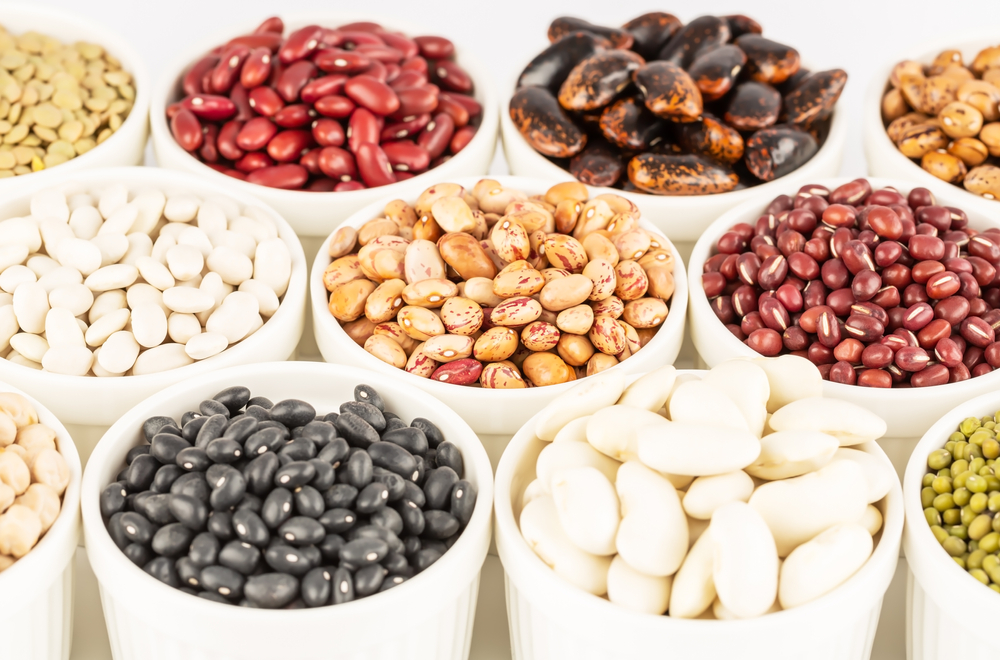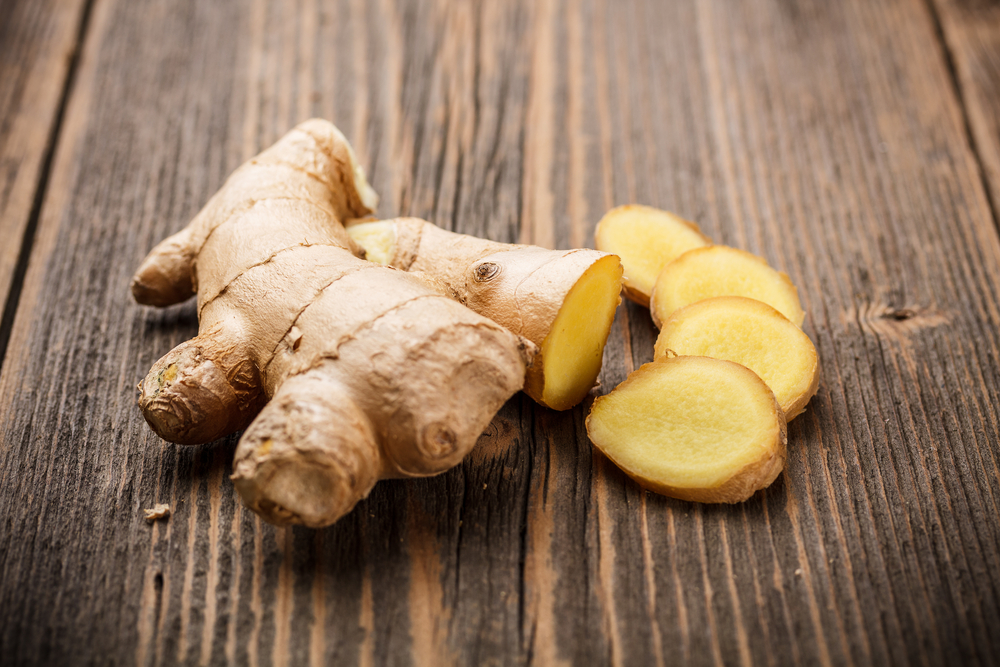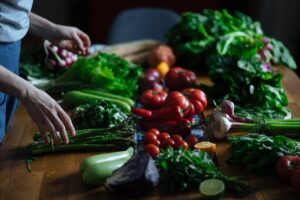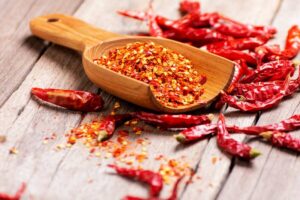Did you know that the health of your digestive system is actually a window into your overall health? In the last few years, research has found a connection between the human gut and a variety of health outcomes — from skin conditions, inflammation, and type 2 diabetes to brain health and autoimmune disorders. It’s no surprise that the digestive tract has become such an important topic in the wellness world.
Digestion is the process through which the human body eliminates waste after absorbing nutrients from food. Since your body needs those nutrients to stay healthy, you must ensure your digestive system functions properly. Unfortunately, a lot of people struggle with digestive problems such as cramping, bloating, gas, diarrhea, constipation, and abdominal pain for a variety of reasons.
Certain conditions like Gastroesophageal Reflux Disease, Irritable Bowel Syndrome, heartburn, and diverticulitis tend to have more severe and painful symptoms, putting your digestive system at risk.
The good news is that we can all improve digestion by eating superfoods (such as fiber-rich foods) and avoiding refined grains and processed foods. That’s why we’ve made a list of 10 foods that support digestion, making sure to also come up with a few ideas on how to use them as well. Get ready to add some foods to your grocery list!

1. Yogurt
Yogurt is definitely one of the most popular foods that boost digestion. Being made from fermented milk, yogurt contains lactic acid bacteria, also known as probiotics. These friendly bacteria — that your gut needs in order to function properly — live naturally in your gut and provide better digestive health.
Luckily, we can also boost digestion by eating some foods that are rich in probiotics — such as yogurt. Probiotics are known to help with digestive problems, such as diarrhea, bloating, and constipation. They have also been found to increase the digestion of lactose (sometimes called “milk sugar”).
However, probiotics aren’t found in all yogurt types. When grocery shopping, make sure to search for “live and active cultures” on the product.
You can either mix it with some oats and frozen berries to have a healthy and balanced breakfast, or you can simply eat it as a snack. But here’s an idea you maybe haven’t tried yet: mix some yogurt with some mustard, add some salt and pepper, and that’s it, you have a healthy dressing for your salad.
2. Pineapple
Pineapple is more than a tasty fruit to be enjoyed. If you’ve ever wondered why in some countries (like in Brazil), people often eat pineapple alongside poultry and meats, we have the answer! Surprisingly, this fruit is rich in bromelain, a group of digestive enzymes that can boost meat digestion.
Bromelain works as a protease, breaking down protein molecules into small peptides and amino acids. Once this process is completed, your small intestine can more easily absorb those protein molecules. This is especially beneficial for those who suffer from pancreatic insufficiency, a digestive condition that occurs when the pancreas doesn’t produce enough digestive enzymes.
Since it has this ability to break down meat proteins, bromelain is also commonly used as a meat tenderizer in restaurants. One in-vitro study found that bromelain decreased inflammation found in the gastrointestinal tract, but more research is needed.
On top of that, pineapples are high in fiber, which can also help digestion.
3. Chia Seeds
These tiny seeds are extremely rich in fiber. Just 1 ounce (approximately 2 tablespoons) has 11 grams of fiber, which is more than 1/3 of the daily recommended intake. When soaked in liquid, the soluble fiber found in chia seeds helps them turn into a pudding-like texture. These same fibers improve water absorption in your gut.
Chia seeds not only help support and promote good bacteria in your gastrointestinal tract, but they can also alleviate constipation by promoting regular, healthy bowel movements.
Have them whole or ground into juices, and smoothies, mixed into oatmeal and yogurt, or sprinkled on a salad. You may also want to try making chia pudding, which can easily turn into your new favorite sweet treat.
4. Apples
Apples are high in a fiber called pectin, which tends to be very gentle with the digestive system compared to others like inulin or chicory root (these two fibers may cause abdominal discomfort or excessive bloating in those people who struggle with digestive conditions). It has been shown that pectin also provides protective benefits in the mucous lining of the intestines — potentially keeping pathogens at bay — and may improve nutrient absorption.
Because it increases stool volume, pectin is commonly used to resolve diarrhea and constipation. On top of that, it has been demonstrated that pectin also reduces the risk of inflammation in the colon, as well as intestinal infections.
All apple varieties provide similar benefits, so choose the ones you like the most to improve your digestion.

5. Beans
Maybe you knew that beans can boost digestion, but perhaps you didn’t know that they aren’t actually vegetables, but fruits. All that aside, these vege… oh wait, fruits, are rich in a fiber called oligosaccharides. Everyone knows that eating beans comes with a slightly unpleasant side effect shown several hours after ingestion. But this reaction is actually a normal — and positive — one.
This fiber found in beans is fermented by the friendly bacteria in your stomach, which is an important step toward nutrient absorption and toxin elimination.
So, if you’re looking for ways to help your digestion, make sure you have beans on your plate! Choosing mixed bean tins instead of just the kidney ones is the best thing you can do — you’ll increase both your plant diversity and fiber intake.
6. Broccoli
It has been shown that broccoli, as well as other cruciferous vegetables like cauliflower, Brussel sprouts and cabbage, can influence the variety of beneficial bacteria in your gut and improve digestive health.
Cruciferous vegetables are also proven to lower the inflammation of the colon and reduce the risk of colorectal cancer. It’s thought that gut fermentation of the prebiotic fiber found in these vegetables is actually a good process through which short-chain fatty acids are formed reducing inflammation this way.
This may cause intestinal gas, but don’t worry because it’s a good sign that digestion is working properly. If you don’t regularly eat cruciferous vegetables, start with small amounts.
7. Fennel
Fennel is rich in antioxidants and fibers, which both help stimulate bowel movement. So, eating fennel may improve digestion due to the stimulation of certain digestive enzymes that ensure the whole process functions properly. This means a lower risk of stomach upsets, gastrointestinal troubles, and so forth.
People who struggle with irritable bowel syndrome (IBS) can consume fennel but also fennel seeds to kickstart digestion. They are rich in essential oils that are known to boost the secretion of enzymes and digestive juices that improve your digestion.
Fennel also has inherent properties that can ease some symptoms such as bloating, cramps, excess gas, and so on.
8. Kombucha
While kombucha’s origins are somehow uncertain, this drink’s effects are quite obvious. Made by adding specific strains of yeast, bacteria, and sugar to green or black tea, the mixture has to go through two fermentation processes. This is how yeast and bacteria end up forming a mushroom-like film on the liquid’s surface. And that’s basically how kombucha is made.
This beverage jumpstarts nutritional absorption and digestion via enzymes and healthy acids. Since kombucha is made through a fermentation process, it contains thousands of good bacteria and yeast, which are great for your gut. Drinking it also helps to reduce the pH of your stomach, creating an alkaline environment. This is very important, especially for those living with acid reflux, irritable bowel syndrome, digestion discomfort, or ulcers.
Some nutritionists recommend avoiding homemade kombucha as it can get over-fermented or contaminated, which can cause serious health issues.

9. Ginger
Discomfort in the upper part of the abdomen and recurrent pain are two of the symptoms of chronic indigestion. It’s thought that delayed stomach emptying is a key cause of indigestion. Interestingly, it has been demonstrated that ginger speeds up the whole process of stomach emptying.
In a small 2011 study, people with functional dyspepsia — a type of indigestion with an unknown cause — were given either a placebo or ginger capsules. After one hour, they were all given soup, and guess what? It took exactly 12.3 minutes for the stomach to empty in those who received ginger. About 4 minutes later, the same effect was also shown in those who received the placebo.
Grate or chop it into salad dressings, sauces, or right on top of your seafood, poultry, or salad. But that’s not all! You can also make it a part of your dessert.
10. Whole Grains
In order to improve gut health and diversify the bacteria in our microbiome, we should all eat more whole grains. Quinoa, brown rice, whole-wheat bread, and other whole grains are extremely rich in fibers which can help increase microbiome diversity, and a more diverse gut microbiome has been linked to a lower risk of digestive chronic disease.
Basically, the fiber found in whole grains can help boost digestion in two ways. First, it decreases stool bulk which reduces constipation. Second, some fibers act like prebiotics feeding good bacteria in your gut.
Trying to cut down on sugar? Here are 8 Healthy Sugar Substitutes You Have To Try!








1 thought on “10 Superfoods That Boost Digestion”
Very good imfo….